Interview with Back To Life director Christopher Sweeney
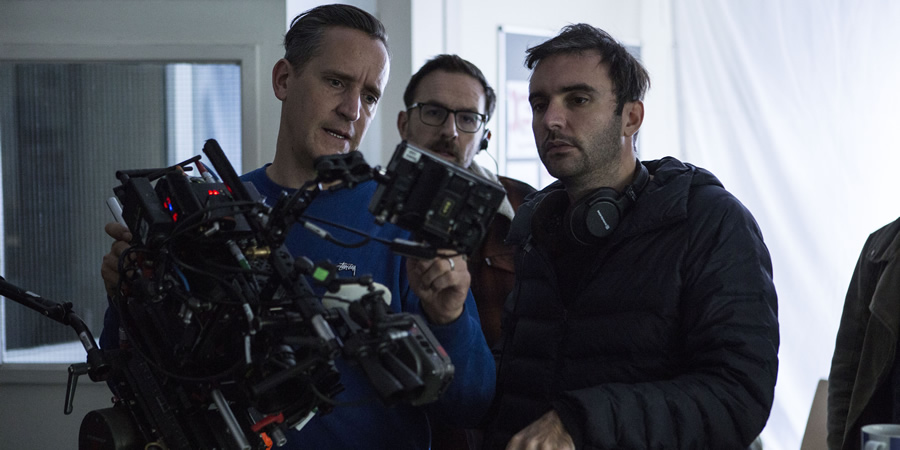
BBC Three's Back To Life stars Daisy Haggard as a woman looking to rebuild her life after a stint in prison. Here director Christopher Sweeney talks more about how they made the show, and what it was like to film his first TV series.
How did you get involved in the project?
This all started because Daisy, who wrote the show and stars in it, and Harry (Harry Williams from Two Brothers), who produced it along with various other people, wanted to make a ten-minute little taster tape to show what this idea was about.
I started out as a music video director and that involves sitting with someone and coming up with how to make everything they love to come to life. And, actually, that's what this process felt quite a lot like.
Daisy wanted to tell this story about someone who went back to their home town after 18 years of being in prison and that needed to be condensed into a ten-minute taster that also showed the tone of the show, in order to get a commission. So once we'd made that, we got a pilot commissioned that developed into becoming a series straight away, so that's how I ended up on this. I had also done sketch shows and kind of things like that before, so I had been moving towards that space.
What was your approach to directing this show?
It was ultimately a collaboration, and everyone's done a really great job and worked really hard. One of the things Daisy wanted to make was something that felt like an American indie film. That was our brief and that's quite hard to do because they take a long time to shoot. All of those kinds of effortless, languid visuals tied with the idea of a comedy that has to be cut very fast, had to come together. So it was a group effort, Laura [Solon] and Daisy wrote it, but I felt as a director my job was to understand what it was that they wanted and see if we could do it.
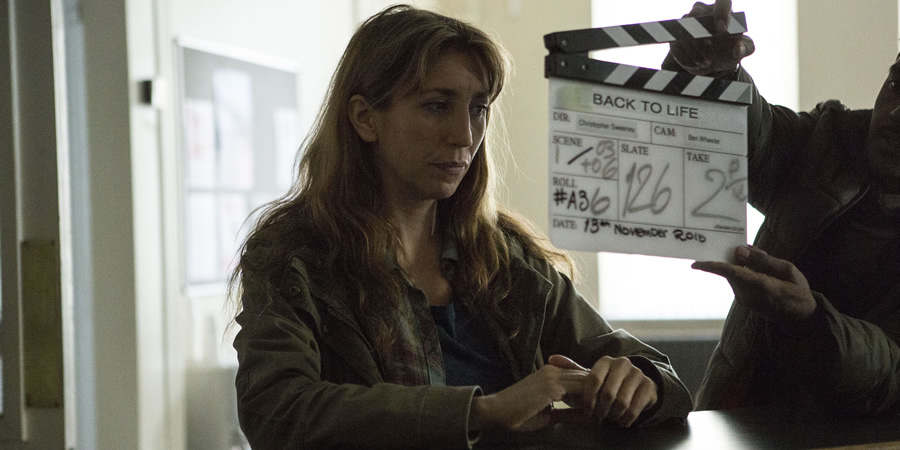
And as your first TV project, how did you find that?
Well, I felt very supported. I think that Two Brothers, as a company, seem to help people realise what it is they want to make.
I didn't really feel daunted because that's just going to distract you. Ultimately, you're just trying to make something good and if you don't have the answer you just tell everyone and everyone helps. I think what I did do was make sure that we were all making the same thing.
Comedy is very subjective. What's mysterious is not that objective, I think most people can agree what a mystery is. So it was just about finding that balance really.
And why do you think this show is such a good fit for BBC Three?
I think BBC Three is known for doing things that are interesting and progressive, perhaps a little bit different and I think this being a comedy drama with some mystery, that's what makes it right for BBC Three in my head. I could be totally wrong about that, but Fargo is a brilliantly mysterious comedy and that was a reference for us and I think it's that that makes it right for BBC Three.
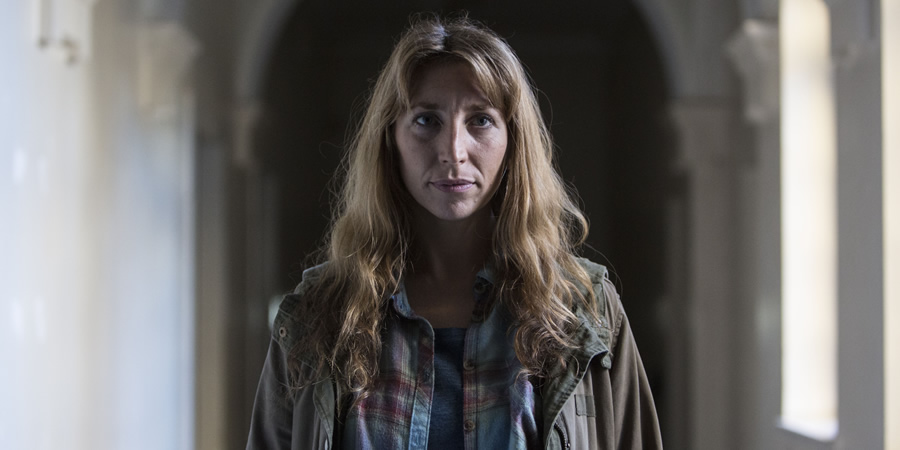
What is so appealing about Back To Life?
The universal appeal of the show is that it's got this mystery that drives the story. You're always trying to work out what version of events is right, what is true. Is Miri to be trusted, is she not?
Everybody loves watching things where you're trying to solve a problem and I think that's something that will really unite people in coming to watch this. But I also think that at the centre of it, it's someone trying to fit in, and I think we've all felt like an outsider at times. Miri's come home and she's now an outsider again because of what she did and that is something that in some way everyone can relate to.
At what stage of the idea's development did you get involved?
The very first conversation I had with Daisy was that she wanted to make something that was like an American indie movie. We looked at some of those that she and I love, like Blue Valentine or Winter's Bone. They all have this kind of very handheld look where you follow one character and it's very cinematic and it's very beautiful cinematography, so that was a big reference for how to make it.
Then the tone, we talked about films like Silver Linings Playbook which is about one person who really wants something but no one's letting them get their old life back and Bradley Cooper's character entirely embodied that in Silver Linings and that was a reference for me.
And Fargo was something that we all felt had a lot of humour but was also mysterious and that was really right for this, as obviously there's a mystery that unfolds.
Were there any budget limitations to what you and the team wanted to achieve creatively?
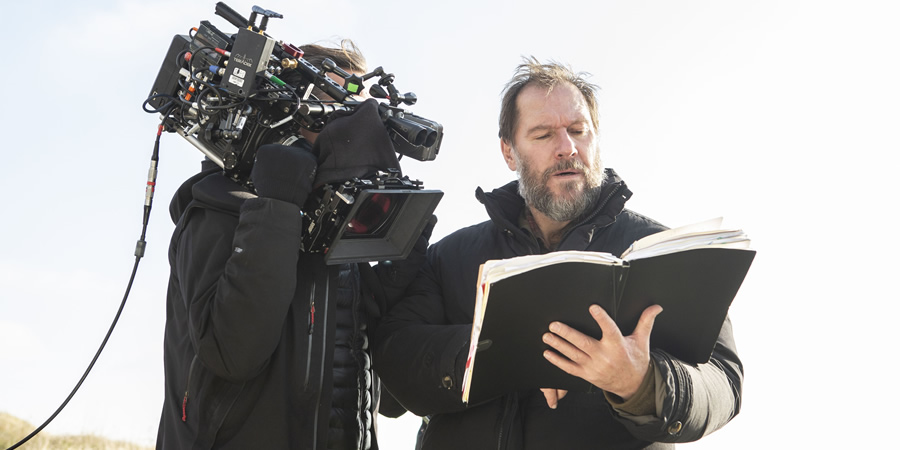
I don't think any budget level of anything you're making ever doesn't have enormous compromises. There's this idea that there's this place you can get to where you can have everything you want and that's when you'll do your best work. I think that not having stuff is what makes you do great things. It is just about always talking and talking about what is the reality of something.
What is the journey we follow in this series?
Over the course of the story, you find out why it was that Miri went to prison and you also have to work out whether she really should have gone away for what she did or not. And through all the other stories that intertwine as she's trying to rebuild her life you get your answers.
It's basically a story that follows Miri, the lead character, and we're always with her. She's this person who has so much spirit and energy but you see her trying to rebuild her life and get her old life back. Over the course of the story, you see her realise that she can't get her old life back and she needs to be happy with this new life. That's the emotional journey. It's what I love about it. I think when something changes for any of us, we always just want to go back to how it was and what you really need to learn is that you can't. I think that's quite universal.
Tell us about the cast and characters?
We were really lucky with the cast because they are all brilliant in their own different ways and they are all really good at doing comedy and drama, which is really hard.
We have Adeel Akhtar who is brilliantly funny, but can be poignant two seconds later, half a second later!
We have Geraldine James who is a brilliant drama actor but has also done loads of comedy. People might know her from things like Little Britain.
Richard Durden who makes you want to weep in some of his performances, but then can also be incredibly funny particularly with Geraldine James and Daisy.
Jamie Mitchie, who plays Dom, who is Miri's ex-boyfriend and who is very funny and very good at giving a portrayal of someone who still thinks they're at high school and the big I AM.
Christine Bottomley plays Mandy, who is Miri's best friend from before she went to prison. Christine has done lots of brilliant comedic acting and has also done some really intense drama. She was able to just go between the two in a way that I loved.
There's a guy who runs a Fish & Chips shop, called Nathan, played by Liam Williams, who is a brilliant stand-up comedian and has a specific way that he does everything that is just funny instantly. And he and Daisy in their scenes together are this brilliant double act, so those are some of my favourite bits of the show.
How would you describe Miri's character?
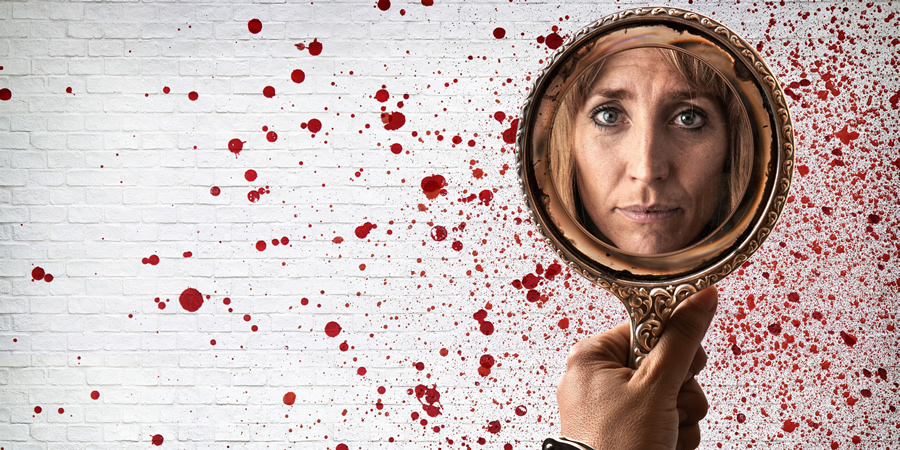
It's interesting because Miri is technically a villain but, in a way, everybody is doing something bad in that town and through the story, you find out that only one person went to prison for them, and that's Miri.
How would you describe her relationships with the other characters?
The key relationship she has is with Billy her next-door neighbour, who she's not being honest with about who she is. You see that develop brilliantly. Adeel, who plays Billy, is one of the funniest people on the planet, so he's just brilliant. And then she has the relationship with her parents which is about trying to heal the wounds of what happened to them. Because although it's a comedy, what they've been through is very intense so there's a lot of stuff that happens in and around that. There's also great stuff between her two parents Oscar and Caroline, as well. They rebuild their lives, so everyone is kind of having their own version of coming back to life.
Any other interesting characters we should look out for?
There's kind of a mystery detective style character, I won't say too much because I don't want to give it away, called Samuel and he is played by an actor called Frank Feys. He is a brilliant sleuth style character who you can't work out if you should take him seriously or not. And over the course of the series, you work out what he does and doesn't know.
Tell us about the location for the show.
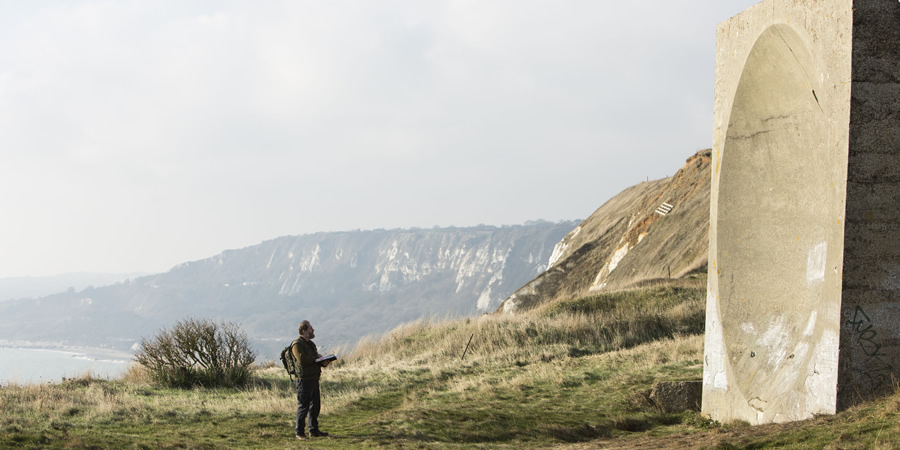
We shot the show in Hythe in Kent purely because a lot of comedy is set in London and a lot of comedy is also set in cities. We thought it would be nice to get out of the city and show a different part of England.
Also, those American indie movies look the way they do because they're huge landscapes. We went to Dungeness and filmed which is this beautiful wasteland. Just two miles and then one house then two miles on the other side. You could have been in Texas or somewhere.
It felt like a very magical place and it felt like it had an underbelly as well, so it felt so right for the kind of story that Daisy wanted to tell. It was important to shoot in the size of town where what she did would be big news and somewhere that Miri would feel claustrophobic. There isn't anywhere else she can go and everywhere she does go, people know her business. That was what was really important to making this character feel trapped.
Do you think it's important that we should see more complex and funny female leads on screen?
I think we are in a time when people are becoming more aware of trying to tell more interesting stories around female characters which is great and really overdue. My role in that, as a man, is to simply provide a platform. I don't really feel like I have anything to add to the conversation about what a complex female character would look like, that's for a female character to say. I enjoy things that are different and go against the grain, particularly with comedy which is often structured around one man.
How has the rise of online viewing platforms impacted the industry in your opinion?
I think lots of people are enjoying watching television or consuming things via the internet just as much as television and that demand means that people are able to be freer with the stories they want to tell because we've got proof there's an audience for it so I think it's a really positive thing that more unusual stories are being told as a result.
This article is provided for free as part of BCG Pro.
Subscribe now for exclusive features, insight, learning materials, opportunities and other tools for the British comedy industry.

